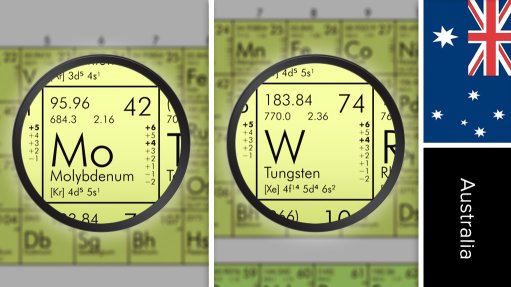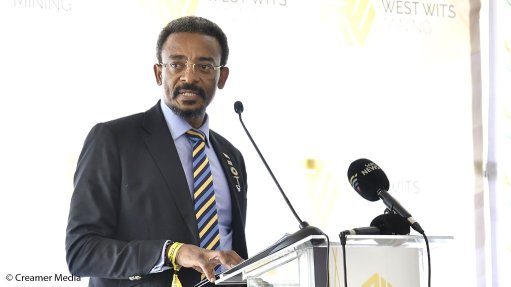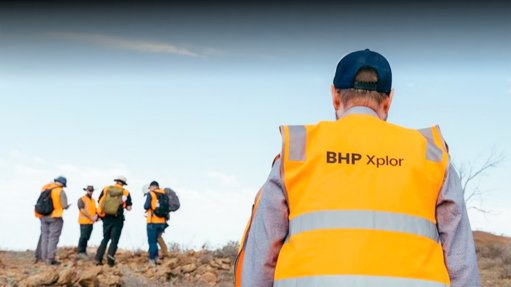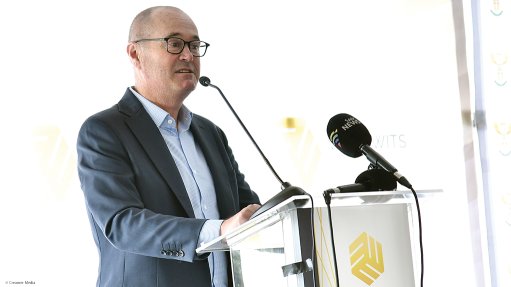Local industry waiting for regulatory certainty



NTSIKI ADONISI-KGAME The firm’s exposure at the Indaba will ensure that legal practitioners specialising in mining are enriched with specialised views about prevailing topics of concern in mining
Carlyn Frittelli Davies We have already seen increased investment in the energy transition by the mining industry, with solar projects being established, particularly in South Africa
The local industry is cautiously anticipating the content of the amendments to the Mineral and Petroleum Resources Development Act (MPRDA), which were alluded to by the Department of Mineral Resources and Energy (DMRE) following the judicial review and setting aside of certain provisions of the 2018 Mining Charter, states ENSafrica natural resources and environment department head Ntsiki Adonisi-Kgame.
The interplay between the mining charters published over the years has caused great confusion in the mining industry, not only in respect to the interpretation but also with regard to their application. This has resulted in regulatory uncertainty in the industry.
“Contextually, the MPRDA placed an obligation on the then Mineral Resources Minister to develop a broad-based socioeconomic empowerment charter which would set the framework for targets and timetable for effecting the entry and participation of historically disadvantaged South Africans into the mining industry; and enable them to benefit from the exploitation of mining and mineral resources and the beneficiation of such mineral resources. This charter was published on August 13, 2004.”
However, the publication of various iterations of the mining charter, the latest being the 2018 Mining Charter, culminated with the Minerals Council filing an application in the Gauteng Division of the High Court of South Africa in March 2019 for the judicial review of certain clauses of the 2018 Mining Charter.
The application was heard in May 2021 and judgment was handed down by a full bench of the High Court in September 2021.
ENSafrica’s natural resources and environment department consultant Carlyn Frittelli Davies says the judgment found that: the 2018 Mining Charter is a policy document, and does not, per se, bind holders of mining rights and prospecting rights; the charter is binding only on holders of mining rights to the extent that its terms have been lawfully incorporated by the Minister into such rights; a renewal of an existing mining right shall not be subject to charter requirements applicable at the time when a mining right renewal application is lodged; continuing consequences shall also be recognised in relation to applications for new mining rights, renewals and transfer of mining rights; and the distribution of the minimum 30% black economic- empowerment shareholding and provisions in respect to the equity equivalent benefit for host communities is no longer prescribed.
Meanwhile, the DMRE briefed Parliament’s Portfolio Committee On Mineral Resources and Energy in November 2021 about the implications of the judgment.
During the proceedings, the DMRE advised the committee of its decision not to appeal the judgment, but instead to consider steps to achieve the empowerment objectives through amendments to the MPRDA. At this stage, it is unclear when such amendments will be introduced but it must be noted that the process of legislative amendments is lengthy and requires public participation.
The Energy Transition and ESG
“We have already seen increased investment in the energy transition by the mining industry, with solar projects being established, particularly in South Africa, owing to the change in the licence exemption threshold from 1 MW to 100 MW of embedded generation facilities now allowed in terms of the Electricity Regulation Act. While the mining of fossil fuels will likely decrease, the transition will not be immediate owing to the intricacies of the current energy dichotomy,” says Davies.
She adds that the investment required for a just energy transition, the surge in battery technologies and minerals required, and the global turn towards environmental, social and corporate governance (ESG) indicates a necessary shift which is of global significance. The existing and proposed ESG- related legislation published by the European Union has already prompted the release of the JSE Sustainability Disclosure Guidance.
For African mining companies to export to the likes of Europe, a focus on ESG imperatives will be necessary, she adds.
The mining energy transition has already resulted in major mines integrating utility- scale and hybrid renewable energy solutions to address energy, climate and ESG goals.
“With increased urgency to decarbonise power in line with 2030 and 2050 carbon targets, mining companies are constantly being challenged to identify the optimal pathways to realize energy cost and carbon footprint goals.”
Mining Indaba
Adonisi-Kgame confirms that ENSafrica will participate in panel discussions at the Investing in African Mining Indaba, to be held at the Cape Town International Convention Centre from May 9 to 12.
Two main themes the firm will be focused on are ESG, and renewable energy. The firm also began hosting a series of webinars regarding ESG for clients and industry leaders that will continue until the end of May.
Adonisi-Kgame adds that these themes resonate with the firm’s current priority to provide well-rounded legal advice for clients that will impact on investments, and notes that ENSafrica will “have a keen focus on the sustainable development day at the Indaba, particularly the ESG-related sessions”.
“ENSafrica remains Africa’s largest law firm, with its footprint across various African jurisdictions. The firm’s exposure at the Indaba will ensure that legal practitioners specialising in mining are enriched with broad, specialised views about prevailing topics of concern in the mining industry, which, in turn, will enable ENSafrica to provide enhanced legal advice for its growing clientele,” she concludes.
Article Enquiry
Email Article
Save Article
Feedback
To advertise email advertising@creamermedia.co.za or click here
Press Office
Announcements
What's On
Subscribe to improve your user experience...
Option 1 (equivalent of R125 a month):
Receive a weekly copy of Creamer Media's Engineering News & Mining Weekly magazine
(print copy for those in South Africa and e-magazine for those outside of South Africa)
Receive daily email newsletters
Access to full search results
Access archive of magazine back copies
Access to Projects in Progress
Access to ONE Research Report of your choice in PDF format
Option 2 (equivalent of R375 a month):
All benefits from Option 1
PLUS
Access to Creamer Media's Research Channel Africa for ALL Research Reports, in PDF format, on various industrial and mining sectors
including Electricity; Water; Energy Transition; Hydrogen; Roads, Rail and Ports; Coal; Gold; Platinum; Battery Metals; etc.
Already a subscriber?
Forgotten your password?
Receive weekly copy of Creamer Media's Engineering News & Mining Weekly magazine (print copy for those in South Africa and e-magazine for those outside of South Africa)
➕
Recieve daily email newsletters
➕
Access to full search results
➕
Access archive of magazine back copies
➕
Access to Projects in Progress
➕
Access to ONE Research Report of your choice in PDF format
RESEARCH CHANNEL AFRICA
R4500 (equivalent of R375 a month)
SUBSCRIBEAll benefits from Option 1
➕
Access to Creamer Media's Research Channel Africa for ALL Research Reports on various industrial and mining sectors, in PDF format, including on:
Electricity
➕
Water
➕
Energy Transition
➕
Hydrogen
➕
Roads, Rail and Ports
➕
Coal
➕
Gold
➕
Platinum
➕
Battery Metals
➕
etc.
Receive all benefits from Option 1 or Option 2 delivered to numerous people at your company
➕
Multiple User names and Passwords for simultaneous log-ins
➕
Intranet integration access to all in your organisation




















